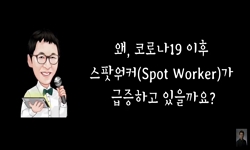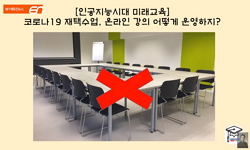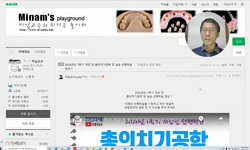This study examines the meaning of forest education for early childhood in the post-Corona era and outlined the necessity and importance of forest education in Korean early childhood education. Forest education is an education that helps children deve...
http://chineseinput.net/에서 pinyin(병음)방식으로 중국어를 변환할 수 있습니다.
변환된 중국어를 복사하여 사용하시면 됩니다.
- 中文 을 입력하시려면 zhongwen을 입력하시고 space를누르시면됩니다.
- 北京 을 입력하시려면 beijing을 입력하시고 space를 누르시면 됩니다.

포스트 코로나 시대의 유아 숲교육의 의미 = The Meaning of Forest Education for Early Childhood in the Post-Corona Era
한글로보기https://www.riss.kr/link?id=A107196453
- 저자
- 발행기관
- 학술지명
- 권호사항
-
발행연도
2020
-
작성언어
-
- 주제어
-
KDC
300
-
등재정보
KCI등재
-
자료형태
학술저널
-
수록면
71-89(19쪽)
- 제공처
-
0
상세조회 -
0
다운로드
부가정보
다국어 초록 (Multilingual Abstract)
The Corona19, which covered the world, brought about changes in the school scene. Non-face-to-face education, learner-centered education, and ecological education, which are characteristic of education in the post-corona age with the value of early childhood forest education. The value of forest education for infants, life and respect for nature, are specified in the 2019 revised Nuri curriculum goal, which is a state-level infant education course, and learners-oriented education is realized through outdoor forest play and infant-centered free play. Therefore, it was considered that forest education for infants was appropriate for the post-corona era.
This study examines the meaning of forest education for early childhood in the post-Corona era and outlined the necessity and importance of forest education in Korean early childhood education. Forest education is an education that helps children develop their whole body based on harmonious relations with nature, and is conducted using nature as a play and teaching tool, and using the forest itself as an institution for early childhood education. In other words, the best teacher for infants is nature, and it is learning, life, and education for infants to communicate and play with nature to their fullest. The forest play of infants is the physical development and social development of infants. It is an education that improves emotional development, cognitive development, and provides universal education such as life-respecting thoughts, artistic experiences, language skills, and creativity development.
The Corona19, which covered the world, brought about changes in the school scene. Non-face-to-face education, learner-centered education, and ecological education, which are characteristic of education in the post-corona age with the value of early childhood forest education. The value of forest education for infants, life and respect for nature, are specified in the 2019 revised Nuri curriculum goal, which is a state-level infant education course, and learners-oriented education is realized through outdoor forest play and infant-centered free play. Therefore, it was considered that forest education for infants was appropriate for the post-corona era.
동일학술지(권/호) 다른 논문
-
- 한국영유아교육보육학회
- 이옥주 ( Lee Ock Joo )
- 2020
- KCI등재
-
「어린이집 표준보육과정에 기초한 0-2세 영아보육프로그램」 동작활동 분석: Gallahue의 기본동작을 중심으로
- 한국영유아교육보육학회
- 이주영 ( Juyoung Lee )
- 2020
- KCI등재
-
어린이집 유형에 따른 영유아 관찰에 대한 교사인식 및 실행 실태
- 한국영유아교육보육학회
- 조유나 ( Cho You Na )
- 2020
- KCI등재
-
창작 그림책에 나타난 조부모 인물의 이미지 특성 분석 연구
- 한국영유아교육보육학회
- 오한나 ( Oh Han-na )
- 2020
- KCI등재




 KISS
KISS






